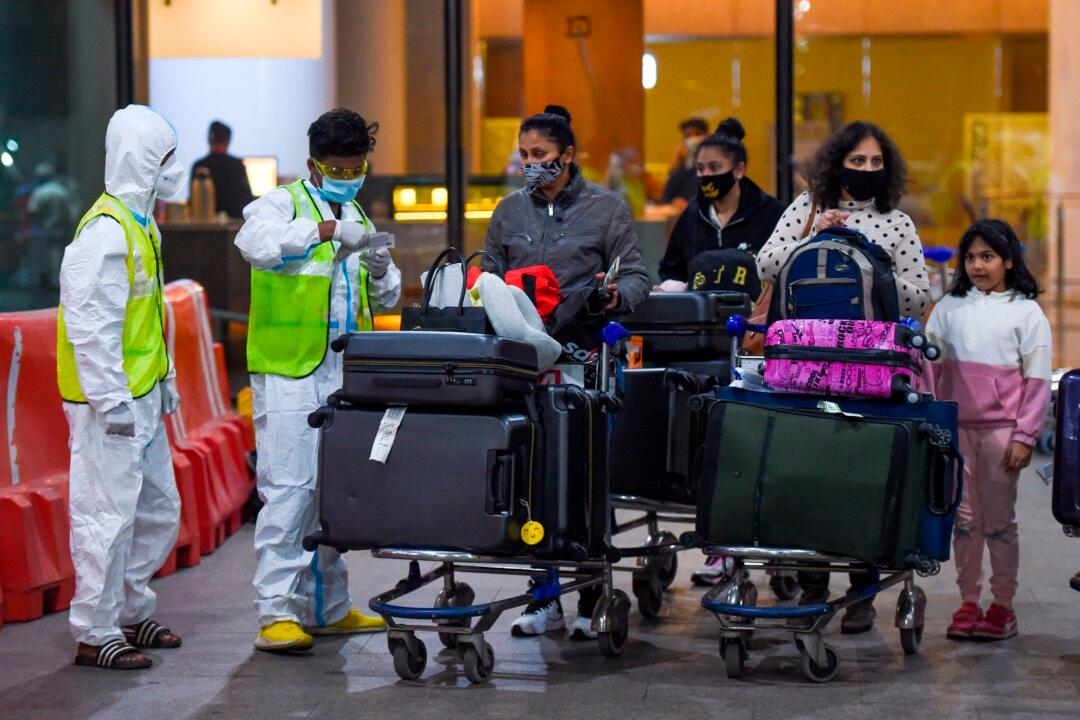The UK will ban travellers from India from Friday to prevent the spread of a new CCP virus variant first identified in that country, the government has announced.
Addressing the House of Commons, Health Secretary Matt Hancock said the government had made “the difficult but vital decision” to add India to the UK’s travel red list.





